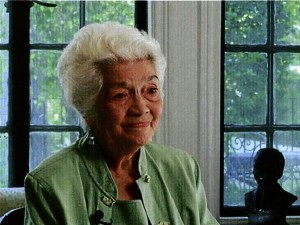As the country commemorates the 134th birthday today, August 19, of Manuel L. Quezon, he is also honored by thousands of Jewish families who have survived and prospered because they found a home in Manila at the darkest time in their history as a race.
It was a point of no return.
German and Austrian Jews—1,200 of them—narrowly escaped Adolf Hitler’s gas chambers just before the German dictator rounded up 6 million Jews who were eventually tortured and murdered in his concentration camps.
“The mob was screaming bloody murder: ‘Kill the Jews!’” recalls child refugee to Manila John Odenheimer who saw Nazi storm troopers rampaging through their Jewish neighborhood.
“We caught the last train out of Berlin, they closed the border after us,” recalls German refugee Guenther Leopold, whose house was smashed and ransacked by Nazi soldiers. “There was nothing left (but broken) glass on the floors.”
The year was 1940. On the other side of the world, a Filipino leader opened his country to fleeing Jewish refugees when no other country would take them.
President Quezon opened the Philippines’ doors to up to 10,000 Jewish refugees.
“We went to the Philippines because it was the only place that gave us a visa,” recalled Harry Brauer, one of the Jews who escaped captivity, during that black period of ignorance and anti-Semitism.
The German and Austrian Jews were given visas to work in Manila.
‘Moral courage’
“Other countries did not think [saving the Jews] was that important, I don’t presume to say,” said Quezon’s daughter Zeneida Quezon Avanceña. “But I know dad had the moral courage to do it because he believed in the sanctity of human life and the right of people to live as they believe they should.”
The dramatic rescue plan for the Jews was devised by three men who mapped out a strategy over weekend nights playing poker and smoking cigars. They were: Quezon, who would sanction the Jews’ official entry and even donate his own land in Marikina and Mindanao for their settlements; American High Commissioner to the Philippines Paul McNutt, who risked his political career convincing US government officials to issue thousands of working visas for Jews to the Philippines; and Herbert Frieder and his sons, owners of the Philippine-based Helena Cigar and Cigarette Factory, who provided jobs in their factory for the Jews, raised money to transport them to Manila, found them housing and schools for their children.
‘Open Doors’ monument
Quezon was the President of the first democracy in the “Far East,” extending safety and liberty to the Jews who would set up the first democracy and Bible-believing state in the Middle East.
The tradition of freedom of worship and support for the biblical “chosen people” would manifest again seven years later when the Philippines became the only Asian nation to vote in the United Nations for the partition of Palestine and the recreation of the state of Israel. Many of the refugees to Manila eventually resettled in Israel.
The Filipinos and Quezon are honored in Israel by an attractive and imposing “Open Doors” monument in Rishon Lezion Memorial Park just off Tel Aviv built in 2009. It commemorates the historic and spiritual ties between two peoples scattered among the nations, united by their commitment to freedom, humanitarian principles and faith in the God of the Bible.
The story of the Jews’ dramatic escape from the Holocaust and their resettlement in the Philippines is recorded in the book “Escape to Manila,” written by refugee Frank Ephraim. A film that records that modern-day Exodus, titled “Rescue in the Philippines,” is being produced by Frieder Films and 3 Roads Communications, a preview of which will be shown on “The 700 Club Asia” on GMA News TV during a “Special Focus on Israel” beginning on September 15.
